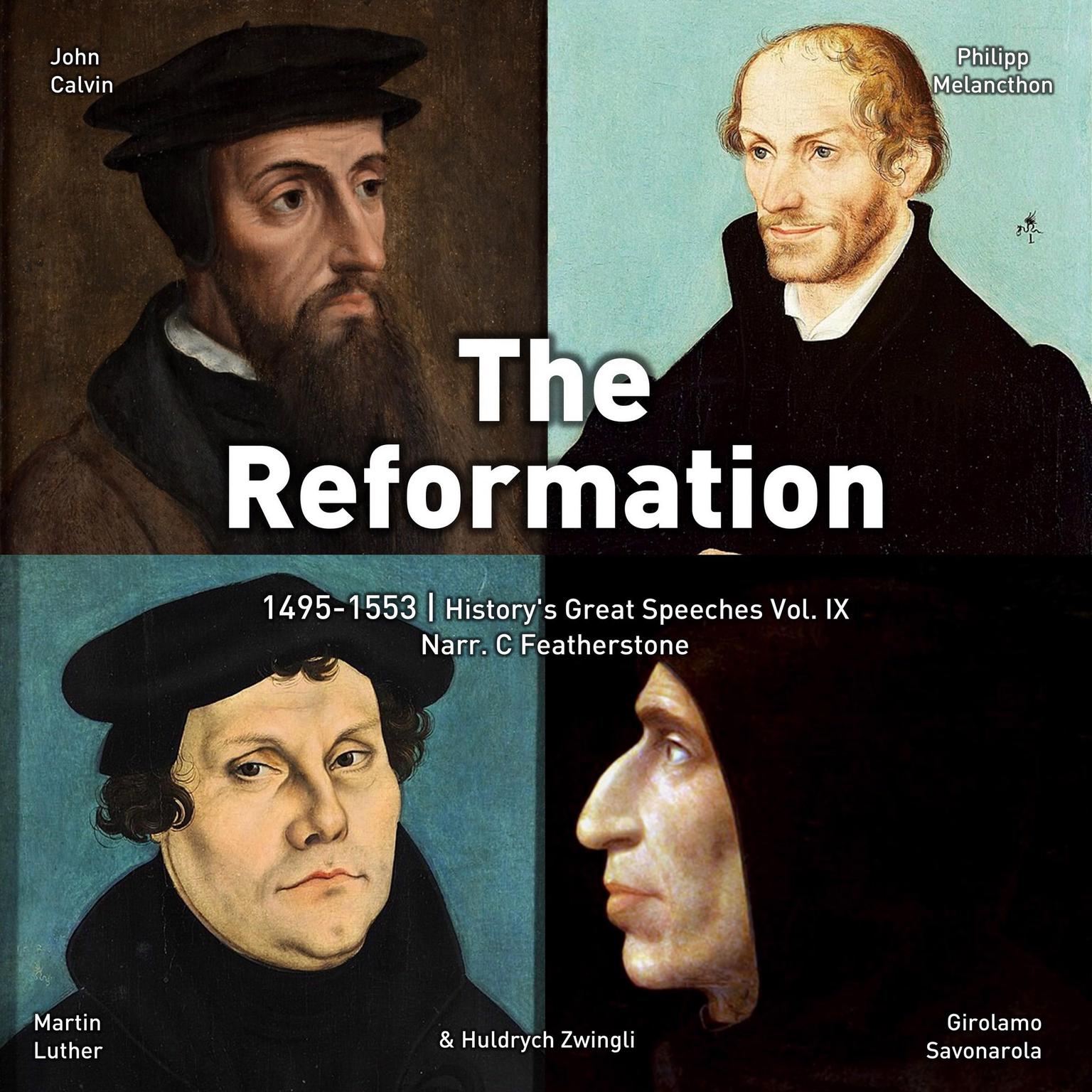 Play Audiobook Sample
Play Audiobook Sample
The Reformation, 1495-1553: The Thinkers That Changed Christianity Audiobook
 Play Audiobook Sample
Play Audiobook Sample
Quick Stats About this Audiobook
Total Audiobook Chapters:
Longest Chapter Length:
Shortest Chapter Length:
Average Chapter Length:
Audiobooks by this Author:
Publisher Description
Martin Luther and John Calvin are household names, where people have little knowledge of them besides their vast impact on Christian thought and culture. It is surprising how closely their language and concerns reflect modern times.
Martin Luther was a rabble-rousing man of the people, filled with invective and the emotional force of connecting with humanity rather than culture or wealth.
John Calvin’s sardonic sense of humour permeates a constant barrage of mythbusting that would do a modern-day fact checker proud.
Three less well-known writers round out the collection. Zwingli, Melancthon and Savonarola all preach with a force befitting true Christians fighting against the vast powers of a Catholic church that was the most powerful entity in Europe, and had consolidated a wide range of practices that broke the people away from an experience of divinity.
Savonarola speaks with the voice of a travelling preacher, a man of the people whose voice matched that of Eugene Debs. Zwingli spoke with a proud nationalism and pride that was wounded by the use of foreign armies, when the land could provide for all its citizens if managed correctly. Melancthon is an academic, providing a point-by-point deconstruction of the Pope’s claimed powers in ways that were irrefutable even for the Jesuit strains that held the Catholic Church’s intellectual force.
Just as with the liberation fighters, socialists, and anarchists of previous volumes, these historical figures lived under great threat, attacking vast forces with little more than courage and the certainty of their beliefs. They stand as the bridge over the cultural change between the middle ages and the renaissance.
Download and start listening now!
The Reformation, 1495-1553 Listener Reviews
Be the first to write a review about this audiobook!
About the Authors
Martin Luther (1483–1546) was a German scholar, priest, theologian, and religious reformer and is considered one of the chief figures in European history. Arguing that money couldn’t buy freedom from God’s punishment for one’s sins, he laid the foundation for Protestant Reformation and greatly influenced the fields of politics, religion, education, and economics through his work and writings.
John Calvin (1509–1564) was a French Protestant theologian during the Protestant Reformation and a central developer of the system of Christian theology called Calvinism, or Reformed theology. In Geneva he rejected the authority of the Pope, established a new scheme of civic and church governance, and created a central hub from which Reformed theology was propagated. He is renowned for his teachings and writings.


